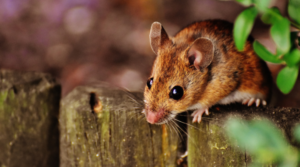Fleas can pose a significant health threat to both humans and animals. These tiny, blood-sucking insects are known carriers of various diseases that can have serious consequences. In this blog post, we will what diseases do fleas carry and why effective pest control is crucial for safeguarding your family and pets.
What Diseases Do Fleas Carry?
Fleas are notorious for their ability to infest homes and pets rapidly. These minuscule insects are more than just a nuisance; Fleas can transmit a range of diseases, making them a serious concern for both pet owners and homeowners alike.
Plague

Most commonly associated with rodents, fleas can act as vectors for the bubonic plague. While occurrences of this deadly disease are rare in modern times, it serves as a reminder of the historical significance of fleas in spreading infectious diseases.
Typhus
Fleas are also known to transmit typhus, a bacterial infection that can lead to severe symptoms such as fever, headache, and muscle aches. Murine typhus, transmitted by fleas on rats, is a form of the disease that remains a potential threat.
Tapeworms
Beyond bacterial infections, fleas can also serve as hosts for tapeworm larvae. When pets ingest fleas during grooming, they become susceptible to tapeworm infestations. This poses a health risk not only to the pets but also to the humans sharing their living space.
Cat Scratch Fever
Fleas that infest cats can carry the bacteria responsible for cat scratch fever, a disease that can be transmitted to humans through scratches or bites. While usually not life-threatening, it can cause discomfort and complications, especially in individuals with weakened immune systems.
Prevention and Control

Given the potential health risks associated with fleas, it’s crucial to adopt effective pest control measures. Here are some practical steps to prevent and address flea infestations:
- Regular Pet Care: Maintain a consistent pet care routine, including regular grooming and the use of flea prevention products recommended by veterinarians.
- Clean Living Spaces: Keep living spaces clean and clutter-free. Regular vacuuming, washing bedding, and cleaning pet areas can help eliminate flea eggs and larvae.
- Professional Pest Control Services: Engage the services of professional pest control experts who specialise in flea eradication. They can provide targeted treatments to eliminate fleas at various stages of their life cycle.
- Outdoor Maintenance: Pay attention to outdoor areas as well. Fleas can thrive in outdoor environments and be brought indoors by pets. Keep lawns well-trimmed and treat outdoor spaces as part of an integrated pest management plan.
Conclusion
Fleas may be small, but their potential impact on health should not be underestimated. Understanding the diseases they carry and taking proactive steps to prevent and control pest infestations is crucial for maintaining a safe and healthy living environment. By partnering with professional pest control services, you can protect your homes and loved ones from the hidden threat that fleas pose.






